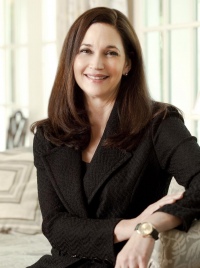About

Carol Quillen
The Liberal Arts and the Global Economy
“It’s a capacity problem, a matching problem, and, to some extent, a return on investment challenge,” says Carol Quillen MN ’83. “How do we educate a much greater number, and a much more diverse group, of students for the global economy, such that each of those students attends and graduates from the institution that best serves his or her talents?”
Access and fit are crucial issues today for top-ranked, private, liberal arts institutions like Davidson College, where Dr. Quillen has been president since 2011. In a constantly changing global economy, she notes, “our biggest challenge is making our value proposition clear to an increasingly skeptical public and government,” she explains. “The best way to do that is to speak clearly and concretely about what we offer in light of what the workplace and the world, now need—and then to demonstrate our commitment to educating very talented students irrespective of their financial circumstances.”
The key, she says, is to “develop within [students] deep talents and capacities that will serve them well even though they’ll likely change professions five or six times over the course of their working lives.” Davidson graduates, Dr. Quillen observes, are in demand in the technology sector “because they’re really good at solving problems, particularly those that have many dimensions and require you to look at them from multiple perspectives.”
Davidson—which recently celebrated its 175th anniversary and which Woodrow Wilson attended before transferring to Princeton—has a longstanding reputation as a highly selective institution, as well as a growing national profile. In 2007, with the creation of the Davidson Trust, it became the first liberal arts college in the United States to offer all students the opportunity to graduate debt-free. “We practice need-blind admission. We meet demonstrated need and we meet it without loans in the packages for every admitted student. That is the mechanism through which Davidson makes evident our commitment to making equal opportunity real, both here at Davidson and hopefully in our democratic society. And that commitment stems from our realization that democracy cannot thrive if access to education depends upon the income level of your parents.”
After a twenty-year career at Rice University as both a professor and administrator, Dr. Quillen became the first non-alumnus to be appointed president of Davidson since 1957. “One consequence of that is that I can make the Davidson community increasingly aware of attributes of this place that are not typical,” says Dr. Quillen. “I’m constantly walking around this campus saying ‘You guys think everyone does it this way, that everyone is as good, but they’re not. You’re really good at this and you need to recognize how distinctive Davidson is.’ I bring a sense of perspective that allows me to identify remarkable, valuable things about Davidson that people who’ve been here for a long time may take for granted.”
On her arrival at Davidson, Dr. Quillen asked two questions of students, faculty, alumni, and other campus constituencies: If they could change one thing about Davidson, what would it be? And what would they ensure never changed? After two years in the presidency, Dr. Quillen reflects on her own answers. “Across the board, and across generations, the Davidson community really values the sense of community that the college creates, and that sense of community rises out of the honor code and the culture of trust and inquiry that flourishes because of the honor code. I would say that is what I would never change.”
And what would she change? “Davidson is not as well-known as it needs to be in communities that have not historically sent their children to Davidson. To the extent that we can make what we do known in those communities, and seek out talented kids who might not have otherwise heard of us, we will create a richer, deeper, more powerful learning environment for everyone and be better at fulfilling our mission,” says Dr. Quillen. “That would be what I would wish for and am working hard to accomplish.”

